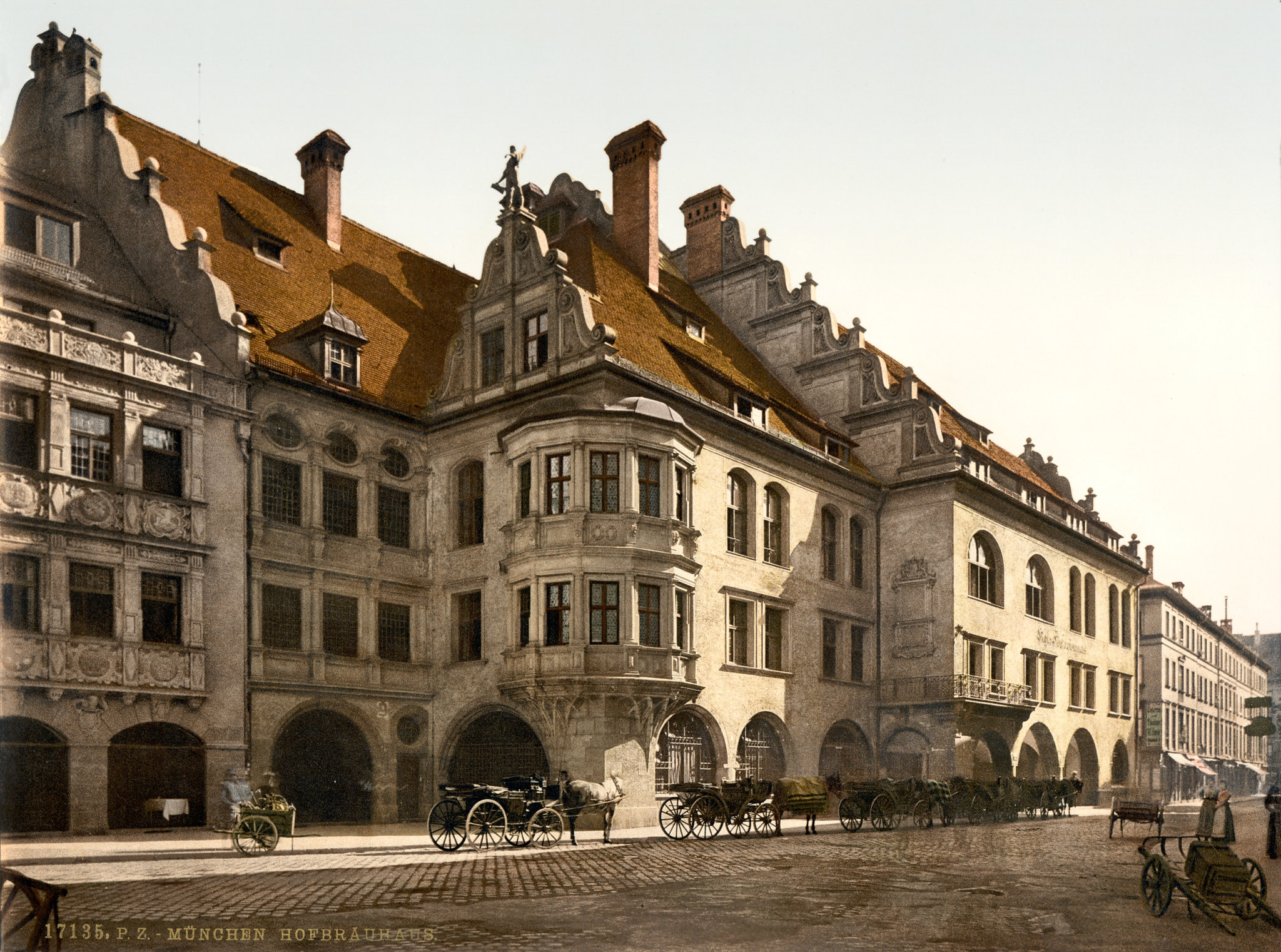The Hofbräuhaus in Munich, Germany, is more than just a beer hall; it’s a living piece of Bavarian history that has been serving up frothy steins and hearty meals for over four centuries. This iconic establishment, whose name translates to “Royal Brewery,” has its roots in the late 16th century when Wilhelm V, Duke of Bavaria, founded the brewery in 1589. At the time, he was dissatisfied with the beer brewed in Munich and decided to import beer from Saxony. However, this proved to be an expensive endeavor, leading him to establish his own brewery.
Initially, the Hofbräuhaus was located at the site of the present-day Staatliches Hofbräuhaus (State Hofbräuhaus) in Munich. The brewery’s first master was Heimeran Pongraz, and under his guidance, the Hofbräuhaus quickly gained popularity among the locals. The brown beer produced here was so well-received that Wilhelm’s son and successor, Maximilian I, decided to make it available to the general public in 1610.
As the brewery’s reputation grew, so did its output. By the end of the 18th century, the Hofbräuhaus was producing around 650,000 liters of beer annually. This success, however, came with its own set of challenges. The increasing demand for beer led to frequent shortages, causing frustration among the thirsty patrons. To address this issue, King Ludwig I decided to open the brewery to the public in 1828, allowing citizens to buy beer directly from the source.
The Hofbräuhaus we know today, located in the heart of Munich’s old town, was built in 1897 by Max Littmann. It was commissioned by the Bavarian government to replace the old brewery, which had become too small to meet the growing demand. The new building was designed in the Neo-Renaissance style, featuring grand halls, ornate ceilings, and traditional Bavarian decor.
Throughout its history, the Hofbräuhaus has played host to numerous notable events and figures. Perhaps one of the most infamous moments in its history occurred in 1920 when Adolf Hitler held one of his first large meetings in the Festsaal, the festival hall on the third floor. On a lighter note, the beer hall has also welcomed countless celebrities, politicians, and even royalty over the years.
Despite its storied past, the Hofbräuhaus hasn’t been immune to the ravages of time and conflict. During World War II, the building was heavily damaged by Allied bombing raids. However, true to the resilient spirit of Munich, it was quickly rebuilt and reopened in 1958.
Today, the Hofbräuhaus continues to be a beloved institution in Munich, attracting millions of visitors each year. It’s not uncommon to see locals and tourists alike, clad in traditional Bavarian attire, raising their one-liter steins in toast. The beer hall’s atmosphere is always lively, with traditional Bavarian music often filling the air and the scent of pretzels and sausages wafting from the kitchen.
While the Hofbräuhaus has expanded its brand globally, with locations in cities from Las Vegas to Dubai, the original Munich establishment remains the heart and soul of this Bavarian institution. It stands as a testament to the enduring appeal of good beer, hearty food, and convivial company – a winning combination that has kept patrons coming back for over 400 years.
As Munich continues to evolve and change with the times, the Hofbräuhaus remains a constant, bridging the gap between the city’s rich history and its vibrant present. It’s not just a place to grab a beer; it’s a living, breathing piece of Bavarian culture, where every stein raised is a toast to centuries of tradition.
The Hofbräuhaus, a historic beer hall and brewery in Munich, Germany, stands as an iconic symbol of Bavarian culture and tradition. Founded in 1589, it has become a world-renowned destination for tourists and locals alike, offering authentic German cuisine, live music, and its famous house-brewed beer. The Hofbräuhaus has played a significant role in Munich’s history and continues to be a vibrant hub of social activity, preserving centuries-old brewing traditions while adapting to modern times. Its enduring popularity and global influence have led to the establishment of franchises in various countries, spreading Bavarian beer culture worldwide and cementing its status as a cultural institution.

